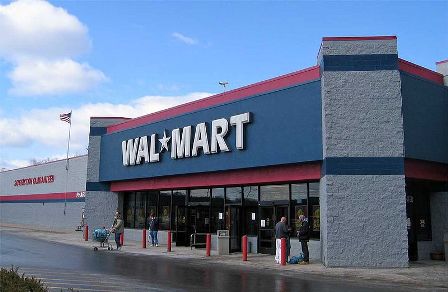 (CNN) -- An Arizona charity may have come out ahead by turning down a gift from the nation's largest retailer -- a snub that grabbed headlines and renewed interest in the labor practices of big business.
(CNN) -- An Arizona charity may have come out ahead by turning down a gift from the nation's largest retailer -- a snub that grabbed headlines and renewed interest in the labor practices of big business.
Casa Maria Free Kitchen, a Tucson-based food bank, rejected a $1,000 donation from Wal-Mart, joining a chorus of voices demanding better pay, fairer work schedules and affordable health care. The retailer had made $15,000 in donations to several charities as part of its typical outreach to community groups after opening a new store.
But the Arizona charity said Tuesday that their snub netted much more than what Wal-Mart's offered after an outpouring of local donations from those concerned about Wal-Mart's effect on union jobs and small businesses.
And yet, it may have all stemmed from a simple mistake.
On October 26, Wal-Mart opened a new outlet in Tucson, boasting 300 new jobs and pledging thousands to charities identified by local political leaders.
"We had expected Casa Maria to be at the grand opening," said Delia Garcia, a Wal-Mart spokeswoman.
But the food bank, which says it bags about 500 daily lunches for low- and no-income residents, never planned to attend.
"We had a big meeting about it and decided not to take the money," said charity organizer Brian Flagg. But Wal-Mart still included the group in its news release, which it later called a miscommunication.
"At that point, we had to do something," said Flagg, who wrote a letter entitled "CORRECTION" to the editorial board of his local newspaper. From there, the attention snowballed as news outlets reported on the defiant local charity that had rebuffed the retail giant.
"At very least, it got us talking about the 'Walmartization' of America, and whether that's a good thing," said Flagg. Those concerned about the discount stores' effects have continued opening their checkbooks, he added.
"I don't have a set dollar amount that we've received, but I'm sure it was substantially more than Wal-Mart offered us," Flagg said. "When people sent us checks, they also wrote 'thank for your stance on Wal-Mart.'"
The retailer responded Tuesday with a statement detailing its "long history of supporting Tucson nonprofits."
"Since 2009, Wal-Mart has donated more than $345,000 to local Tucson organizations that are supporting the community's needs," it said. "Our pay and benefits typically meet or exceed what's offered by the majority of our competitors; we promote from within, our turnover rate is below the industry average and our associates' satisfaction scores have trended higher over the past few years."
The average wage of a full-time Wal-Mart employee in Arizona is $12.52 per hour, with the company reporting that it picks up about 75% of premium health care costs. But part-time employees who work fewer than an average of 30 hours per week do not qualify for those benefits, Garcia said.
As a capital-versus-labor debate again flares up across the country, Flagg's rebuff of Wal-Mart drew a heady response.
"I have never given to Casa Maria before but when I read about them rejecting a donation from Wal-Mart I sent them a check," Tucson resident Kim Crooks posted on Facebook. "I have never been in a Wal-Mart and never will. They have come into to many communities and put the small locally run businesses out of business."
But the move also sparked criticism about whether the group had shirked its main responsibility to feed the hungry.
"I think that these people are horrible," Jen Switalski posted on the site. "As a charity they should take what they can get."
The local spate also coincided with Black Friday demonstrations at Wal-Mart stores over pay, schedules and affordable health care.
Critics say the stores' low prices squeeze out mom-and-pop competitors, depress wages and encourage foreign-based manufacturing while discouraging unionized labor.
Supporters argue that Wal-Mart instead offers competitive wages and that its bargain prices foster consumer spending critical to a beleaguered economy.
Wal-Mart and firms like it, they say, also give low-income households a chance to purchase otherwise unaffordable luxury products such as large-screen televisions and other electronics.
So who's right?
According to a 2008 study by West Virginia University economics professor Russell Sobel, Wal-Mart has had no real impact on the number of small businesses in the United States. And while mom-and-pop stores that are forced to compete with the retail giant are often put out of business, other businesses have taken their place, the study found.
Others such as Robert Reich, a professor of public policy at the University of California at Berkeley and a former U.S. secretary of labor, argue that jobs filling those voids often offer low-wage, no-benefit occupations, limiting the purchasing power of America's middle class and poor.
™ & © 2012 Cable News Network, Inc., a Time Warner Company. All rights reserved.
Portland and Seattle
Free Subscription to Breaking News
Free Subscription to Breaking News























































































































































































































































































































































